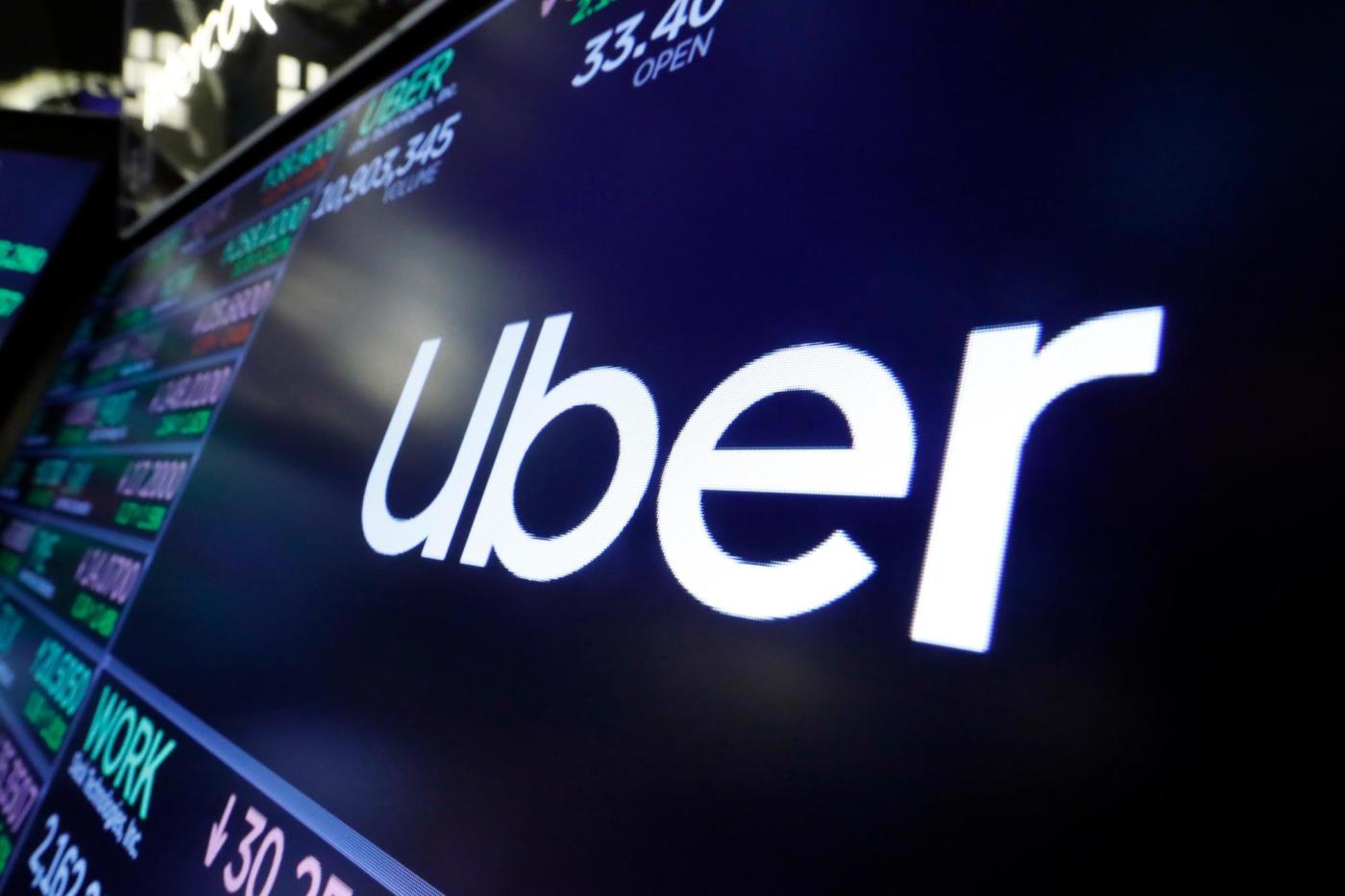
Minneapolis Mayor Jacob Frey, hospitality industry urge compromise on Uber, Lyft wages
When Corbb O’Connor’s school-age son has a medical appointment, he has two choices as a visually-impaired parent — a 20-minute ride in a ridesharing vehicle like Uber, or a nearly two-hour trip on public transit in each direction to transport his child to and from school.
If Uber leaves the market, “my life’s not going to be over with,” said O’Connor, a Highland Park resident and president of the National Federation for the Blind. Still, “that’s a whole day off.”
With Uber threatening to leave the Twin Cities metro on May 1, Minneapolis Mayor Jacob Frey joined dozens of representatives of the hospitality industry and advocates for the elderly and disabled on Monday to urge the Minneapolis City Council to compromise on recently-mandated wage increases.
The Minneapolis council could take a reconsideration vote on Thursday, a decision that could have deep implications for St. Paul and the eastern suburbs.
Impact of losing rideshare services
Uber has said that unless the wage increases are overturned, the company will pull out of the metro area entirely next month, which would be a particularly hard blow to restaurants and concert-goers, sports fans and members of the disability community, who in many cases rely on ride-hailing apps to access medical appointments and other services.
Lyft, the other major player in the ride-hailing market, has said it will maintain drivers in the Twin Cities after May 1, without completing trips that begin or end in Minneapolis.
Among more than 50 attendees at Frey’s press event in downtown Minneapolis on Monday was Jonathan Weinhagen, president and chief executive officer of the Minneapolis Regional Chamber of Commerce, who said he’s receiving questions from major event planners and site selectors on a daily basis.
Some have told him they’ll likely focus instead on Indianapolis, Austin, Texas, Boston and other competing markets until the transportation turmoil settles down.
“We’re being told we may not be considered: ‘You’re being taken off the shortlist,’” he said.
Those concerns were echoed across the Mississippi River.
“This is an unfortunate example of local government action having negative implications outside its borders,” said B Kyle, president and chief executive officer of the St. Paul Area Chamber, in a written statement on Monday. “I hope the Minneapolis City Council will compromise before May 1, but if they do not, the state should step in. As we work to revitalize downtown St. Paul, we can’t allow these fantastic destinations — from the Science Museum to the Ordway to Wild and Saints games — to become more difficult to access.”
Compromise
Frey said he has presented the Minneapolis council with a range of wage options based on a new state study that found that raising wages to $1.20 per mile and $0.34 per minute would bring driver earnings in line with the Minneapolis citywide minimum wage of $15.57 per hour while also covering added benefits.
Lyft, in a recent letter to the Minneapolis City Council, has said it was open to compromise at an even lower level outlined in the study — $0.89 per mile and $0.49 per minute — which would cover the minimum wage and expenses like vehicle maintenance. The Minneapolis council last month overrode Frey’s veto and stuck to newly-adopted minimums of $1.40 per mile, $0.51 per minute.
“It wasn’t close,” said Frey on Monday.
“The mayor has been clear and consistent in his push to both increase driver pay and ensure rideshare services continue operating in Minneapolis,” reads a written statement from his office. “The mayor would support a rate of pay increase in line with the recently released statewide study and is asking the city council to send him an ordinance that he can sign into law – one that reflects the data in the state’s study.”
Some skeptics believe the two ridesharing companies are bluffing and are unlikely to roll out of Minneapolis, which is likely their largest Midwest market after Chicago. However, the companies once pulled out of Austin, Texas for a year until the state governor stepped in to create uniform statewide rules around driver credentials.
Lyft, Uber alternatives
A handful of start-up ridesharing companies, including some that have established a footprint in other states, are gearing up to offer services in Minneapolis and St. Paul, but Frey noted it’s unlikely that any of them will soon bring the volume of Uber and Lyft, which employed some 8,000 drivers in the metro.
And, finding drivers may be the easy part. Uber and Lyft built up their services over more than a decade, getting around language barriers and other uncertainties of the traditional cab industry with state-of-the-art satellite mapping technology, driver rating systems, driver background checks, contactless payment and other consumer guarantees.
None of that has come cheap. As of December, Uber is said to have more than $9 billion in debt on its balance sheet, according to industry analysts.
O’Connor, of the National Federation for the Blind, noted that some start-up rideshare apps were developed without input from the blind and disabled, and without sufficient testing, making them incompatible with smartphone apps for the visually impaired.
Among possible new entries into the Twin Cities market, a Woodbury entrepreneur hopes to launch MOOV, and the chief executive officer of Austin, Texas-based Wridz said his company will roll into the market, whether Uber and Lyft depart or not.
Driver-owned platform
A coalition of drivers has formed the Minnesota Uber-Lyft Driver Association, which is using online fundraising to launch a driver-owned rideshare platform with support from the team that built Co-op Ride in New York City.
“Let Uber and Lyft leave,” reads a statement from the association, which announced on Saturday it had signed up more than 1,500 drivers in the previous week.
“At this point the major barrier is funds,” wrote labor organizer and co-founder Erik Forman, in an email to supporters this weekend. “If we can get to $35k in donations, I think we can inspire foundations or investors to provide the rest of what we need.”
In an interview last month, Randy Wang, founder of San Francisco-based Wingz, said his company had not previously considered the Twin Cities market. Wingz, which launched in California as an airport service, has transitioned to the “NEMT” market — non-emergency medical transportation — focused on bringing customers to and from medical appointments, often backed by Medicare and Medicaid reimbursements.
Wingz, which has a sizable presence in Georgia’s NEMT market, plans to expand into Arkansas and Tennessee.
“These would all be on the medical side, exclusively,” Wang said. “Minnesota hasn’t been on our radar, but we’re definitely eyeing the news. If we had to meet the new requirements, we probably could pull it off, but haven’t really looked into it yet.”
Related Articles
Justus Ramsey Stone House could rise again — with $500,000 in proposed Legacy Act backing
Lime, Spin to roll scooters, electric-assist bike-sharing back to St. Paul
Metro Transit to debut St. Paul-to-Woodbury Gold Line on March 22, 2025
Metro Transit expands Northstar service to Twins, Vikings games
Millions of recalled Hyundai and Kia vehicles with a dangerous defect remain on the road


